 image by Ehteshamul Haque Adit on Unsplash
image by Ehteshamul Haque Adit on Unsplash
 image by Ehteshamul Haque Adit on Unsplash image by Ehteshamul Haque Adit on Unsplash Do you know the allegorical image known as 'The Vinegar Tasters'? It is related to Eastern philosophies and may be helpful to reflect upon as we end one calendar year and begin another, particularly as today’s Gospel reading offers us symbols brought to the Christ child from the East. For which gifts are we to offer at this time? What pathways are we seeking to tread into the future?...
0 Comments
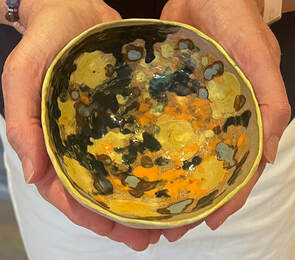 I thought it might be helpful this morning to bring along a favourite bowl of mine. It was made by an artist friend Kerry Holland, whose paintings and bowl sculptures on the theme of The Visitation is currently on exhibition in Pitt Street Uniting Church. She also made this one, which she gave to me as a gift when I came out as transgender, affirming my authentic gender identity a few years ago. It is precious to me for that reason but also because, like all of Kerry’s bowl sculptures it is unique, with its own particular shape, story, and constellation of colours. In that sense, it is like each human being: an exquisitely unique and special divine creation. The more I reflect upon that, and upon the nature of a bowl itself, the more I am also drawn into the love of God. So I would like to share with you some ways in which each of us might helpfully use a bowl as a prayerful way into appreciating ourselves and others and holding together what can easily be misused in the Gospel parable (Matthew 25.31ff) which we heard read just now. For, whilst that passage is in some ways quite straightforward in the challenge it offers us, it is also presents some questions, particularly in the way it divides people into two black and white binary groups, one of which receives blessed things and the other total condemnation… 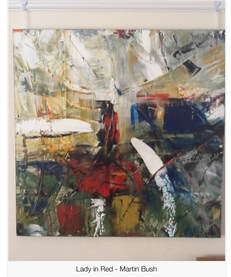 Maybe what she wanted to do was punch Him (God) But she couldn’t So Sarah laughed Didn't Suzanne Terry put it well in her poem 'Sarah Laughed'? How many of us have wanted to punch God, or worse, for what has happened, or not happened, to ourselves and others? In Genesis chapter 18, Sarah laughs out of her deep experiences of sorrow, anger, and utter frustration, with God. After all she has experienced, as a childless migrant woman, in an ancient patriarchal culture where child-bearing was so important, how dare God turn up and now declare fresh hope. Why take so long to give this gift? Why put Sarah through such trials? We can easily identify. As elsewhere in the Bible, we are not presented with a simple moral or spiritual inspiration. Rather we encounter a very human struggle, with which we are invited to wrestle. Suzanne Terry’s poem is a product of this. For she was responding to a book entitled Those Who Wait: Finding God in Disappointment, Doubt and Delay. This, like other writings by Tanya Marlow, seeks to explore how we live with the realities of suffering… 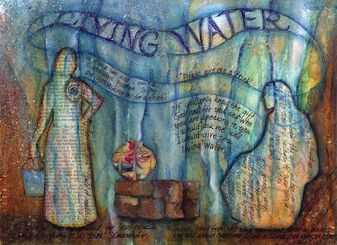 If I were choosing the books which have most shaped and inspired my life, then very high on that list would be Janet Morley’s All Desires Known. Originally published in England in 1988 by the Movement for the Ordination of Women, and Women in Theology, it remains not only as an evocative expression of the Christian feminism which shaped so much of my early adult and ministerial life, which I also shared in with my wife Penny, and which, in many ways (together with other aspects of faith, and football) saved my life. Like Janet Morley’s earlier book Celebrating Women, co-edited with Hannah Ward, it also represents a landmark in the development of new life-giving language and imagery for God. For All Desires Known is a book of prayers for public and private worship, and it was formed out of the experience of an intentional community, the St Hilda Community, which specifically sought ‘to receive the broader vision of our Christian heritage and women’s spiritual offerings in language which excludes no person and no image of God’:[1] a ‘non-sexist’ community, giving ‘full space and authority to women, without apology, secrecy, or shame.’[2] It is good to recall this today, in the wake of International Women’s Day this week, and as we hear the subversive, and in some ways shocking, Gospel story of Jesus and the Samaritan woman at the well. For exploring life-giving language and imagery for God and prayer remains an invitation to us all. Like the woman at the well, we too seek living water, and the source which can quench our thirst: our profound, existential desire for life in all its fullness. 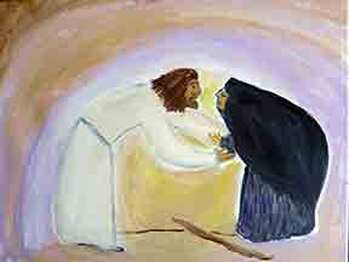 Jesus and the Bent Over Woman, by Sister Barbara Schwarz, www.artafiregallery.homestead.com Jesus and the Bent Over Woman, by Sister Barbara Schwarz, www.artafiregallery.homestead.com Today’s Gospel story is one which resonates powerfully with me. For I had lower back problems for many years, and I still vividly remember my back going into total spasm as I once tried to change trains at Strathfield station. I was bent double and simply could not move, despite the help of others. It was a key moment in which I began to realise that my life, and especially my relationship to my body, had to change. I had to start listening to my body, in which so many emotions, not least denied gender and sexual emotions, were trapped. Not simply physically, but in other ways, I had to learn to bend and unbend, more fully to know and flow into my life and spirit. Now, of course, not all our ailments and physical challenges have obvious spiritual connections. However many, in my experience, do, and this is certainly part of what the Gospel writer is trying to say to us in our story today. For whilst we may speculate on the likely form of physical arthritis with which the woman may have been afflicted, Luke is calling us to recognise our spiritual arthritis and its potential for transformation in God. At this time, in the life of this community, and the wider Church and world, it is perhaps well worth reflecting upon. Indeed, as we continue to ponder our own mission calling together, it is good to ask what bending and unbending might represent for us, not least in our prayer and worship life. For whilst it might be tempting to consider today’s Gospel story in relation to many whose physical bodies and lives need unbending, I believe that the great mystic Evelyn Underhill had it right when she said: We mostly spend our lives conjugating three verbs: to Want, to Have, and to Do… forgetting that none of these verbs have any ultimate significance, except so far as they are transcended by, and included in, the fundamental verb, to Be. Prayer and worship, she, and I, would propose, are about helping us with that fundamental verb: bending and unbending our lives and bodies, our whole selves, be-ing, in relationship to the Spirit of all… In recent years some of my Aboriginal friends have said to me that they do not really believe in the Australian concept of Reconciliation and some of the activities, like Reconciliation Action Plans, which have accompanied it. Meanwhile some Church leaders have said to me that they do not see much point in engaging actively in ecumenical endeavours. So why, we might ask, are we marking the Week of Prayer for Reconciliation and the Week of Prayer for Christian Unity this morning? Actually I did wonder about changing the title on the front of our liturgy sheet today to ‘Prayer for Just Relationships and Communion in Christian Diversity’. That, for me, would be at least part acknowledgment of the difficulties of the words Reconciliation and Christian Unity and the need for re-imagining as well as building on the good work of the past. However I have left Reconciliation and Christian Unity in the title for the present, so we honour where we have traveled. Nonetheless, as we hear our two readings this morning (from Revelation chapter 22 and John chapter 17), we do well to reflect more deeply on the words and constructions we may use in order that we share in more fruitful pathways for our work together with others. For that purpose I also offer you the cartoon meme entitled the #4thBox, as an encouragement to deeper prayer, more imaginative reflection and more creative action…
 On this day we gather to remember the suffering of Christ, and those who. like Christ, have suffered: often needlessly, seemingly pointlessly. We will reflect upon seven circles of suffering: in our own person, in our family, in our close relationships, in our wider community, in our nation, in our world and in our earth. We light the Christ candle and seven candles to bring to mind those seven areas where pain is often experienced. As we reflect more deeply on each one its candle will be extinguished but the Christ candle will continue. “Let your gentleness be known to everyone. The Lord is near.” How fascinating! – the writer’s conviction that the second coming is at hand does not result in a plea for evangelism, or even for love, but rather for gentleness. So, what is to be gentle? The dictionary suggests, kindly, amiable, tender; or with more of a class nuance ‘of good family’ ‘noble’ – from the Old French from which we derive genteel. It is also a verb – ‘to gentle’ means to make less severe or intense, or perhaps to soothe by stroking; to treat with kindness and not cruelty. Gentleness is listed as the eighth of the fruits of the spirit in Galatians 5;22. As such it translates the Greek word prautes, which is sometimes rendered ‘meekness’, which has unfortunate connotations in modern English of servility. The Full Life Study Bible defines the word helpfully as ‘restraint coupled with strength and courage’...
 So, it’s straightforward is it? Ask, seek, knock – and you will get some kind of response – not necessarily the response you were hoping for; but at least a response. And if we ask for the gift of the spirit, Jesus is saying God will always give us that gift. It sounds like a transaction – right words in, right results out, a bit like a vending machine! Yet prayer, and Jesus’s teaching about prayer, is not as straightforward as it might appear, or perhaps as we might hope. On the one hand in this passage Jesus sounds very reassuring – God will treat us better than we treat our own children; we can be assured of God’s care for us and God’s responsiveness to our needs. Keep it simple – ask for what you want and you will receive it, search and you will find, knock and the door will be opened. But on the other hand, it really is not quite like that, is it? We all know of others if not ourselves, who have prayed for help, for healing, for relief from suffering in all kinds of terrible circumstances, and it seems as though their prayer has fallen on deaf ears. So, what then? – was their prayer not ‘good enough’; their faith not ‘strong enough’; their moral calibre not high enough? Surely this is not how it works? Yet I have known folk despair of God’s love for them and reject themselves as unworthy and unfit, simply because God has not appeared to answer their legitimate, heartfelt prayers. This is not the kind of God I want to know or associate with – and it is not good enough to say; ‘it’s all a mystery and one day we will understand!”... |
Authors
sermons and reflections from Penny Jones & Josephine Inkpin, a same gender married Anglican clergy couple serving with the Uniting Church in Sydney Archives
June 2024
Categories
All
|
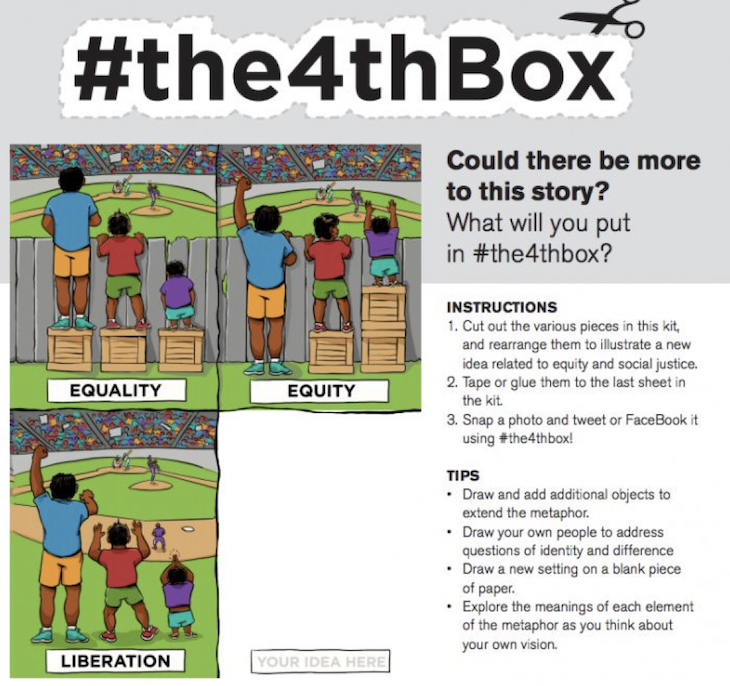
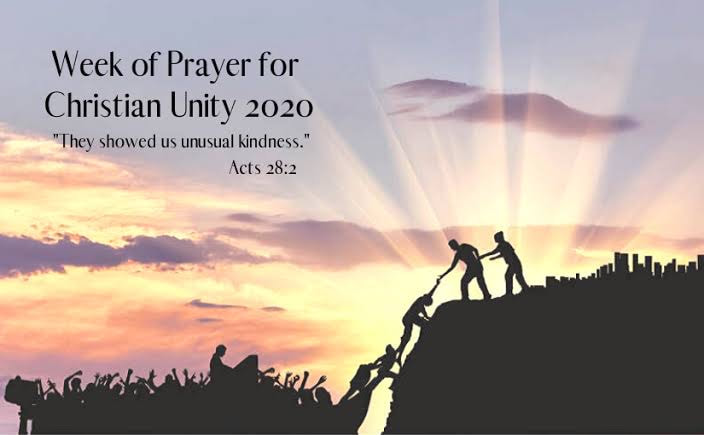
 RSS Feed
RSS Feed